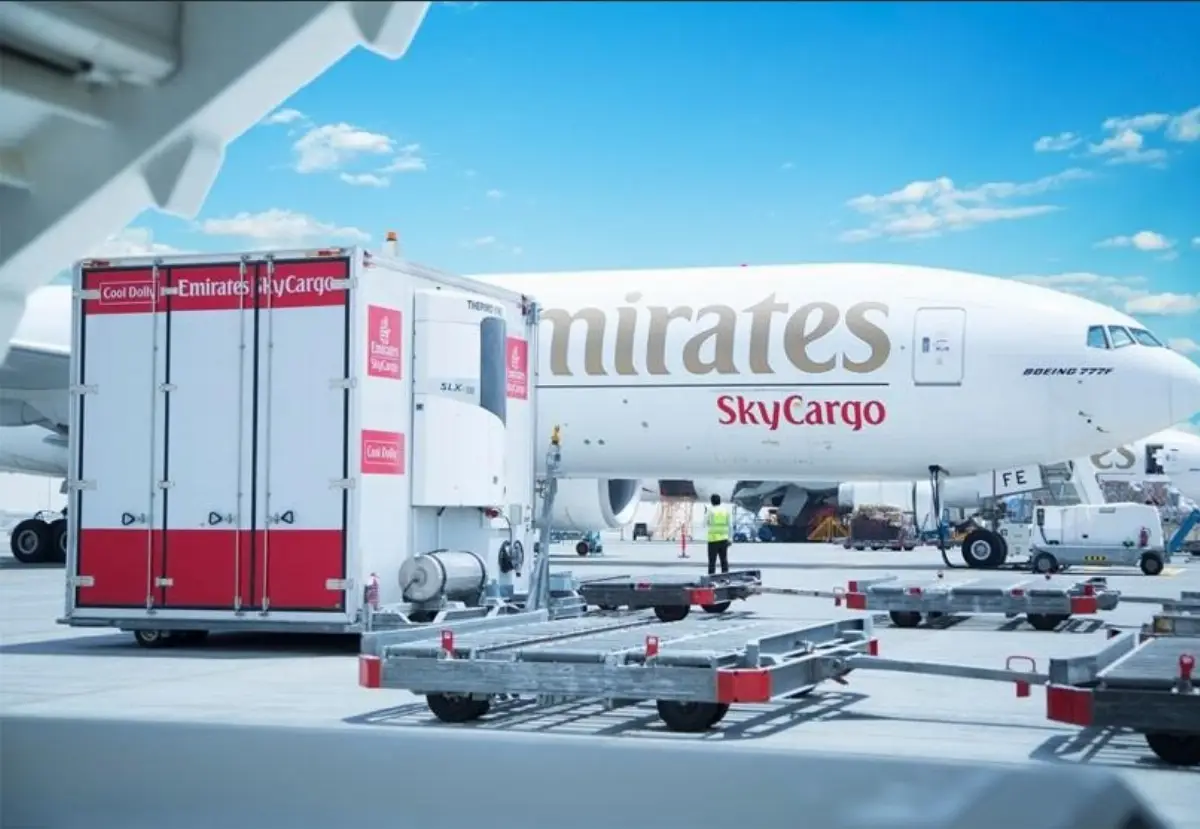
Emirates Group (2): performance of the carrier and Skycargo airline
Destinations, aircraft delivery, transported passengers, investments

Emirates performance
Its total passenger and cargo capacity grew 4% to 60.0 billion ATKMs in 2024-25, recovering to near pre-pandemic levels.
During the year it launched two new destinations - Bogotá and Madagascar; restarted flights to Phnom Penh, Lagos, Adelaide and Edinburgh; and strengthened services to 21 other destinations to meet rising demand. By 31 March, Emirates served 148 cities in 80 countries and territories. Emirates also grew its partnerships to 33 code-share and 118 interline partners, providing customers smooth access to over 1,750 cities beyond its network.
The first A-350 aircraft joined airline’s fleet this year, bringing added capacity for the airline to serve customer demand with its latest products. By 31 March, it had 4 A-350 airplanes in its fleet flying to Edinburgh, Ahmedabad, Bahrain, Colombo, Kuwait and Mumbai.
With ongoing delays in new aircraft deliveries, Emirates added 99 more aircraft to its retrofit programme which will now see 219 aircraft go through a full cabin refresh at a total investment of US$ 5.0 billion. At 31 March, Emirates’ order book had 314 aircraft pending delivery, including 61 A-350s, 205 B-777X, 35 B-787s, and 13 B-777Fs. Total fleet count at the end of March was 260 units, with an average fleet age of 10.7 years.
By strategically deploying capacity to serve surging demand across markets, Emirates’ total revenue for the financial year increased 6% to AED 127.9 billion (US$ 34.9 billion). Currency fluctuations and devaluations in some of the airline’s major markets negatively impacted the airline’s profitability by AED 718 million (US$ 196 million).
The carrier saw a record operating cash flow of AED 40.8 billion (US$ 11.1 billion) in 2024-25, which reflects its strong commercial performance and enables the airline to grow the business going forward.
Total operating costs increased by 4% from last financial year. Fuel and employee cost were the airline’s two biggest cost components in 2024-25, followed by cost of ownership (depreciation and amortisation). Fuel accounted for 31% of operating costs compared to 34% in 2023-24. The airline’s fuel bill decreased slightly to AED 32.6 billion (US$ 8.9 billion) compared to AED 34.2 billion (US$ 9.3 billion) the previous year, as lower average fuel price (down 10%) including hedging gains offset a higher uplift of 5% from increased flying.
With robust appetite for travel across customer segments, the strength of its global network, and strong customer preference for its products, Emirates hit a new record profit after tax of AED 19.1 billion (US$ 5.2 billion), outstripping last year’s AED 17.2 billion (US$ 4.7 billion) result with an exceptional profit margin of 14.9%. This is the best performance in the airline’s history, and in the airline industry for the reporting year 2024-25.
The airline carried 53.7 million passengers (up 3%) in 2024-25, with seat capacity up by 4%. The carrier reports a Passenger Seat Factor of 78.9%, a marginal decline from 79.9% last year. Passenger yield remained consistent at 36.6 fils (10.0 US cents) per Revenue Passenger Kilometre (RPKM).
Emirates continued to invest in delivering ever better customer experiences. In addition to a range of inflight service enhancements in 2024-25, Emirates invested AED 63 million in its lounge product, opening two new lounges at London-Stansted and Jeddah to bring the total number of dedicated Emirates Lounges globally to 41; and renovated existing facilities in Bangkok and Paris.
Emirates SkyCargo delivered an outstanding year, carrying 2.3 million tonnes of goods around the world, up 7% from the previous year as the delivery of 2 new B-777 freighters and 2 wet-leased 747 freighters unlocked capacity to serve surging demand for air transport.
Ably navigating the ongoing challenges in global logistics, the cargo division reported a solid revenue of AED 16.1 billion (US$ 4.4 billion), contributing 13% to Emirates’ total revenue. Cargo yield per Freight Tonne Kilometre (FTKM) increased by 10%, returning to pre-pandemic marketplace levels.
This strong performance reflects Emirates SkyCargo’s ability to win customer preference and serve demand with its specialist logistics solutions, the power and connectivity of Emirates’ global network, Dubai’s world-class intermodal logistics capabilities, and the airline’s ongoing investments in digital technology, infrastructure, and tailored products.
During the year, Emirates added Copenhagen to its freighter network and signed an MoU with Astral Aviation to expand its reach in Africa.
Emirates placed orders for 10 more B-777Fs, a significant investment to strengthen its cargo division’s position at the centre of global trade and logistics. Emirates SkyCargo has 13 freighters on order and expects to operate a fleet of 21 freighters by December 2026.
At the end of March, Emirates’ SkyCargo’s total freighter fleet stood at 10 B-777Fs.
See for details AVIONEWS.
2) continues
AVIONEWS - World Aeronautical Press Agency